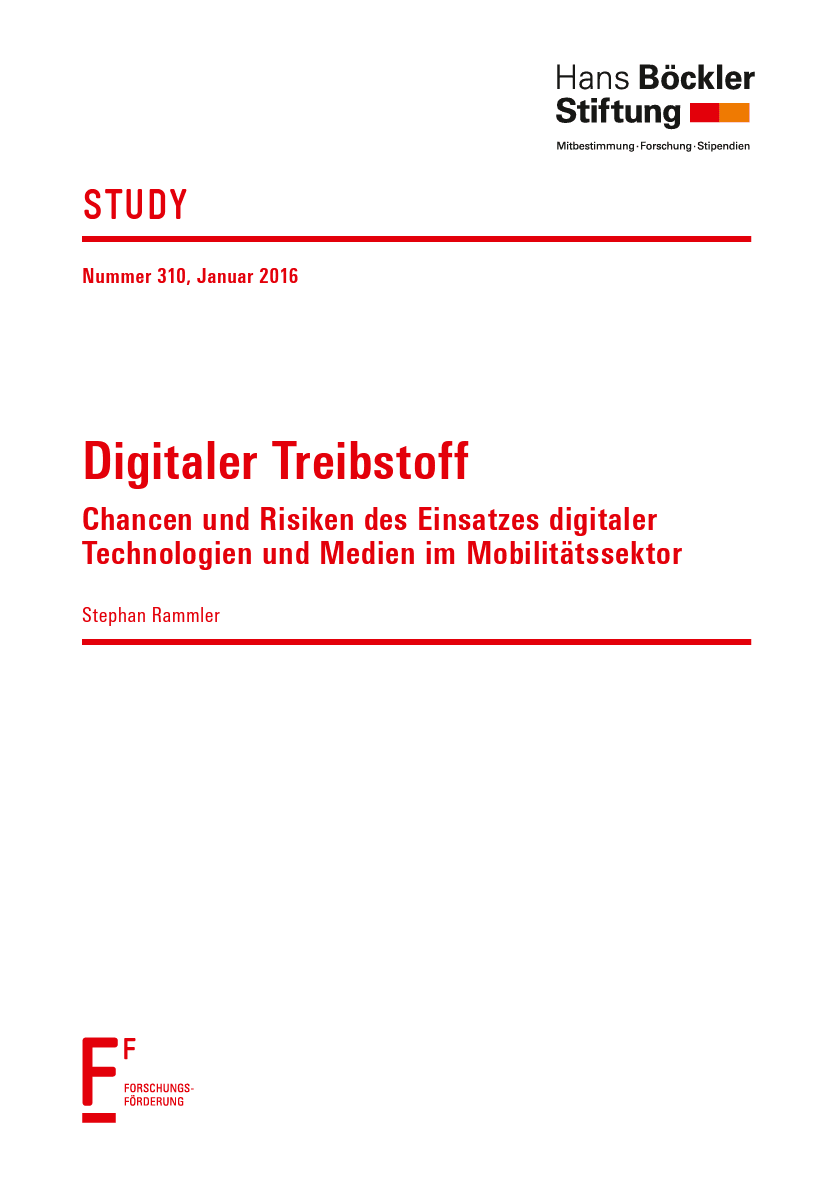Digital fuel. Opportunities and risks of the use of digital technologies and media in the mobility sector
Abstract
The aim of this project was to consider the enormous opportunities as well as the risks of the digitalisation of the mobility sector in the overarching context of social science mobility research. In addition to an initial stocktaking, systematisation and conceptual linking of effective principles and areas of application of digital technologies in the mobility sector as well as an assessment of their consequences and risks, the thesis was pursued here in particular that digitalisation may have the potential, metaphorically speaking, to become the fuel of the globalised mobility economy of the 21st century. In other words, both complementary and substitutive data streams may have the power to transform the less sustainable mobility formats of the fossil-industrial phase - especially the dependence of the transport sector on oil that developed in the 20th century - into the ecologically, economically and socially sustainable system innovations of a phase that might then be called solar-digital. This viable option for the future must be considered, evaluated and shaped in the context of the likewise not inconsiderable ecological, political, social and economic risks of digitalisation - especially with regard to its possible traffic-inducing effects. However, the limited time frame of this study initially only allows for an explorative and thesis-generating character of the elaborations and derivations on a secondary analytical basis. This is illustrated and deepened with narrative micro-scenarios on individual topic areas. In the concluding chapter, initial indications of the need for research and options for political action are provided, which require further discussion and elaboration.
